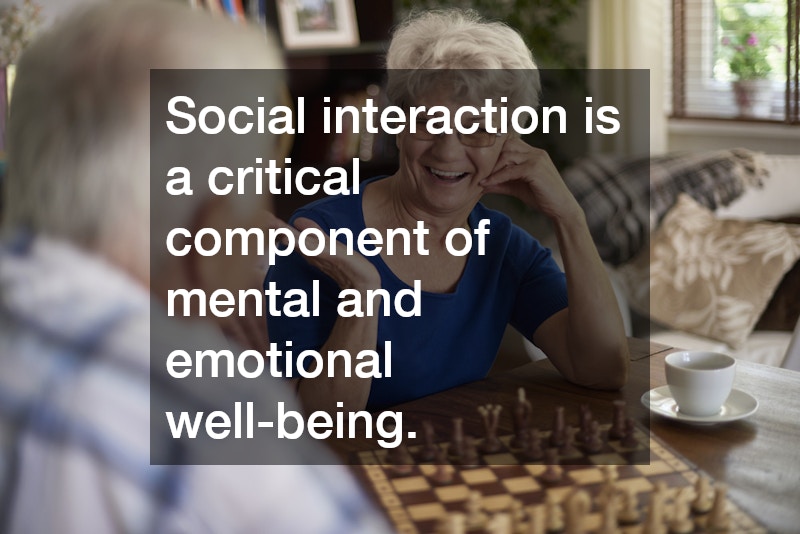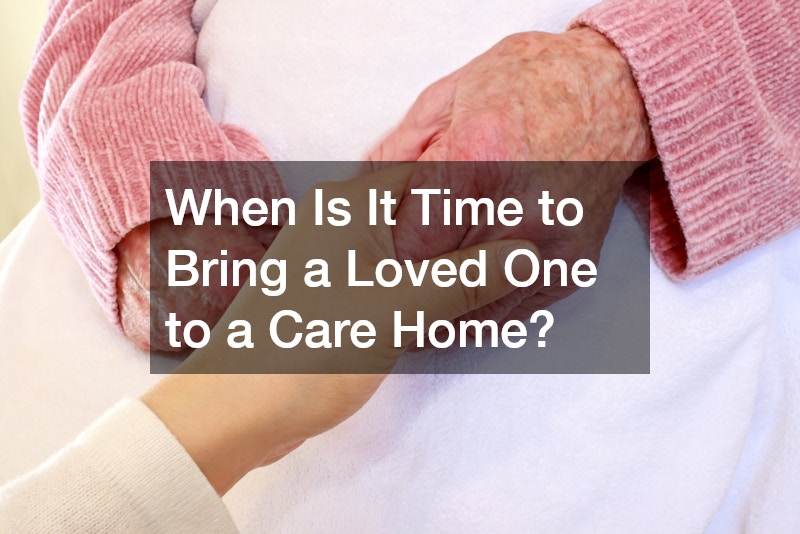Caring for an aging or unwell loved one can be one of the most challenging and emotional responsibilities a family faces. While many strive to provide care at home for as long as possible, there often comes a time when the level of care required surpasses what can reasonably be provided. In these instances, care homes offer a safe, supportive, and nurturing environment where loved ones can receive the attention they need while maintaining a sense of dignity and quality of life.
Determining the right time to move a loved one to a care home is never an easy decision, but understanding the key signs and benefits of professional care can help families make this transition with confidence and compassion.
Declining Health and Medical Needs
One of the clearest indicators that it may be time to consider a care home is a loved one’s declining health or increased medical needs. Chronic illnesses such as dementia, heart disease, or Parkinson’s often require specialized care that may be difficult to provide at home.
If your loved one has frequent hospital visits, struggles with mobility, or requires constant medical supervision, a care home with trained staff and medical professionals can offer the support they need.
Care homes are equipped to manage complex medical conditions and provide 24/7 care, ensuring your loved one’s health and well-being are prioritized. They also offer access to resources like physiotherapy, medication management, and emergency response systems, which can be crucial for individuals with serious health concerns.
Challenges with Personal Care
When your loved one starts having difficulty managing daily activities such as bathing, dressing, or eating, it may be a sign that a care home is the best option. These tasks, often referred to as activities of daily living (ADLs), are essential for maintaining dignity and quality of life. Struggles with personal care can also increase the risk of accidents, such as falls in the bathroom or improper medication usage.
Care homes are designed to provide assistance with these everyday tasks in a respectful and professional manner. Trained caregivers ensure residents are comfortable, clean, and well-fed while fostering a sense of independence whenever possible.
Cognitive Decline
Cognitive impairments like dementia or Alzheimer’s disease can create significant challenges for family caregivers. A loved one experiencing memory loss, confusion, or disorientation may require constant supervision to prevent wandering, forgetting medication, or other safety concerns.
Care homes that specialize in memory care provide a secure environment tailored to individuals with cognitive issues. These facilities have specially trained staff, structured routines, and activities designed to support mental health and delay further cognitive decline. This ensures your loved one receives compassionate care while minimizing risks.
Increased Caregiver Stress
Family members often take on the role of caregiver out of love and devotion, but the physical, emotional, and mental toll can become overwhelming. If you find yourself feeling constantly exhausted, anxious, or unable to manage your own life, it may be time to consider alternative care options.
Burnout not only affects your well-being but can also impact the quality of care you provide. Moving your loved one to a care home allows you to focus on your relationship with them rather than the stress of caregiving. It also ensures they receive professional care in a supportive environment.
Social Isolation
Social interaction is a critical component of mental and emotional well-being. If your loved one is spending most of their time alone or struggling to connect with others, they may benefit from the community environment offered by care homes.
Residents in care homes have opportunities to engage in group activities, make friends, and participate in hobbies or events. These interactions can combat loneliness and depression while providing a sense of belonging and purpose.
Safety Concerns
As individuals age or face declining health, safety can become a major concern. Falls, mishandling of medications, or difficulty navigating their home can put your loved one at risk. If their living environment is no longer safe or practical, a care home can provide a safer alternative.
Care homes are designed with accessibility and safety in mind, featuring features like handrails, non-slip flooring, and emergency call systems. Staff members are also available to respond quickly in case of accidents or emergencies.
Financial Considerations
Providing care at home can become financially burdensome over time, particularly if specialized equipment, home modifications, or professional caregivers are needed. While care homes require an upfront financial commitment, they often provide comprehensive services that can reduce overall costs compared to piecing together care at home.
It’s important to evaluate your loved one’s financial situation and explore available options, including government assistance programs, insurance coverage, or long-term care benefits, to determine the most practical solution.
When Care Homes Are the Right Choice
The decision to move a loved one to a care home is deeply personal and often accompanied by feelings of guilt or uncertainty. However, recognizing that a care home offers a better quality of life and professional support can bring peace of mind. These facilities are staffed by compassionate professionals who are committed to providing residents with the highest standard of care.
By choosing a care home, you ensure your loved one is in an environment tailored to their needs, whether they require medical supervision, assistance with daily tasks, or social engagement. It also allows family members to focus on spending meaningful time together rather than being overwhelmed by caregiving responsibilities.
Identifying the right time to bring a loved one to a care home involves assessing their health, safety, and overall well-being. Signs such as declining health, challenges with personal care, cognitive issues, and caregiver stress indicate the need for professional assistance. Care homes provide a safe, nurturing space where residents can thrive physically, emotionally, and socially, making them an invaluable resource for families navigating this challenging decision.
.


